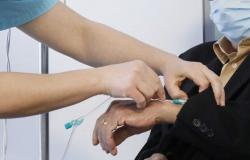What is HPV, the virus that caused cancer in Ana Maria Braga?
According to data from the National Cancer Institute – Inca, in Brazil, excluding non-melanoma skin tumors, cervical cancer is the third most common type of cancer among women. In 2023, 17 thousand new cases were registered, which represents a considered risk of 13.25 cases for every 100 thousand women.
Presenter Ana Maria Braga spoke about the HPV virus recently, commenting that she discovered cancer in the anal region caused by this virus. And she’s right: HPV can also cause cancer in the anal region, mouth and throat, despite being more common in the cervix, as explained by Mariana Rosario, gynecologist, obstetrician and mastologist, member of the clinical staff at Albert Einstein hospital. “That’s why it’s so important to vaccinate girls aged 9 to 14 and boys aged 11 to 14 with the vaccines available in the SUS”, warns the doctor.
Mariana explains that HPV (acronym in English for Human Papillomavirus) is a virus that infects the skin or mucous membranes (oral, genital or anal), of both men and women, causing anogenital warts (genital region and anus) and cancer, the depend on the type of virus. It is a very feared Sexually Transmitted Infection (STI) because the virus causes 99% of cervical cancer cases.
“When people have unprotected sex, they are exposed to various diseases – and HPV is one of them. From exposure to HPV, genital warts (genital condylomas or condylomas acuminata) may appear, which indicate the presence of the virus, pre-malignant cancer lesions (also called precursor lesions), various types of cancer, such as cervical cancer, uterus, vagina, vulva, anus, penis and oropharynx, as well as Recurrent Respiratory Papillomatosis (RRP)”, informs the doctor.
The disease can also remain asymptomatic, whether or not it manifests itself throughout life. What is known is that anyone infected with HPV becomes a potential transmitter of the virus. And, although statistics indicate that 10% of men or women will have this type of wart throughout their lives, this number could actually be higher, due to the fact that many people do not manifest the disease, but transmit it to others. This is why, increasingly, the use of condoms is so important.
“It only takes one intimate relationship for you to become infected with HPV. This is a highly contagious virus and is transmitted through direct contact with infected skin or mucous membranes. Thus, the touch of the hand or mouth with the genital organ or the sexual act itself can generate contagion – without necessarily penetration”, she says.
The diagnosis of HPV is carried out by clinical examination, in the office, with confirmation by Pap smear, colposcopy and vulvoscopy, in addition to in situ hybridization, hybrid capture and PCR. The High-Risk HPV Test is also carried out, an exam that can ensure the presence of the virus even in women without signs or symptoms of the disease.
“Every woman needs to have a Pap smear annually, an exam that detects the presence of diseases in the reproductive system. From the moment a woman is infected with HPV, she needs to be even more attentive, undergoing vulvoscopy and oncotic colpocytology, which are simple tests, carried out at the same time as the Pap smear, but which have the function of checking whether HPV is active in the body, causing injuries. If symptoms appear, it is necessary to cauterize them, using appropriate methods, such as laser or acids, so that the problem does not progress and cancer appears”, says the doctor.
There is no specific treatment to eliminate the Human Papillomavirus from the body. It can disappear spontaneously or remain latent for life, manifesting itself when immunity drops. When genital warts appear, treatment is individualized, varying according to the medical option, size, quantity and location of the lesions and the patient’s financial conditions, because there are treatments that the SUS does not offer or even insurance plans do not cover.
Thus, there are lasers, electrocauterization, the application of trichloroacetic acid (ATA) and the adoption of medications that improve the immune system. In cases of cancer, even surgery is adopted.
Vaccine
In Brazil, the Unified Health System (SUS) provides the vaccine to the following groups:
– Girls aged nine to 14 and boys aged 11 to 14;
– HIV carriers;
– Transplanted people between the ages of nine and 26 and undergoing medical follow-up.
The vaccine is administered in two doses, with the second administered six months after the first dose. HIV carriers and transplant recipients are entitled to receive three doses, at intervals of 0, 2 and 6 months. Other age groups can have access to vaccines in private services, as long as they have a medical indication. In private services, three doses are administered, at intervals of 0, 2 and 6 months.
According to the National Health Surveillance Agency (Anvisa), women between 9 and 45 years old can receive the quadrivalent vaccine, and women aged 9 to 25 can also receive the bivalent vaccine. Men between 9 and 26 years old are recommended only the bivalent vaccine. Also according to Anvisa, clinics are not authorized to vaccinate people outside these established ages.
The two vaccines are best suited for girls and boys who have not yet started their sexual life and it is during this period that protection is most effective.
The HPV vaccine does not cover all types of existing viruses, but it prevents against the four main types, two of which are specific to genital and anal warts and the other two viruses responsible for the development of cancer.
Even for those people who have already been infected by one type of virus, the vaccine is still recommended, as it can prevent different ones with which they have not had previous contact.
Find out more about fashion, beauty and relationships. Check out the news from iG Delas!
read more






